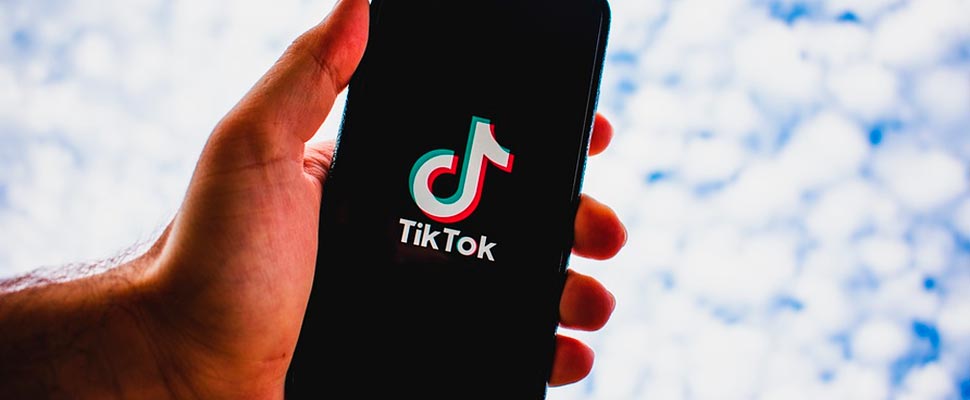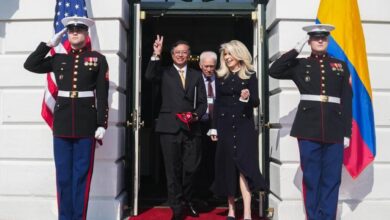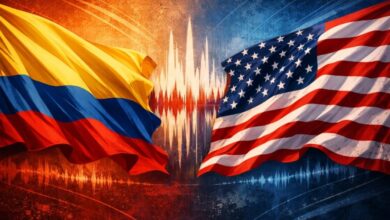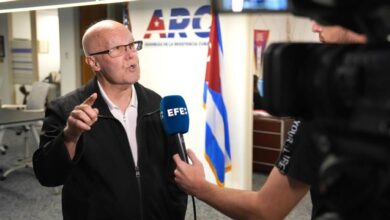Tik Tok and K-pop: the new activism?
There was a lot of confusion last Saturday regarding the low audience of Donald Trump's Tulsa rally, here is everything you should know about it.

The event called by Donald Trump in Tulsa, was sabotaged by thousands of Tik Tok users and K-Pop fans. / Photo: Pixabay
LatinamericanPost| Staff
Listen to this article
Leer en español: Tik Tok y K-pop: ¿el nuevo activismo?
Ignoring the peak of infections by Coronavirus, Donald Trump has resumed his electoral campaign. To do this, he called a rally in Tulsa, Oklahoma, one of the cities where he is supposed to have the most supporters. The rally took place this past Saturday, June 20. For this, and to be more emphatic in his distrust of the importance and seriousness of the Coronavirus, Trump convened more than a million people in an auditorium. They had commented a lot about the many reservations of tickets, but when the day came there were many empty seats, what happened?
The outdoor stage for @realDonaldTrump’s Rally in Tulsa being built.
This will be the 1st time that POTUS speaks to BOTH crowds in person – inside & outside.
If you come to the rally and don’t get into the BOK Center before it’s full, you can still see the President in person! pic.twitter.com/7hoLFgzvLA
— Brad Parscale (@parscale) June 20, 2020
A first theory
Brad Pascale, president of Donald Trump's reelection campaign, had repeatedly announced on Twitter that this would be a full house event, that is, the audience would be bursting. After the disappointment this Saturday, Pascale tweeted his first theory on Monday: he claimed that Trump supporters had not been able to enter the auditorium because protesters had prevented the entry to the rally. However, the New York Times reporters who were there said that there were not too many protesters at the entrance to the event.
A teenage joke
Actually you just got ROCKED by teens on TikTok who flooded the Trump campaign w/ fake ticket reservations & tricked you into believing a million people wanted your white supremacist open mic enough to pack an arena during COVID
Shout out to Zoomers. Y’all make me so proud. https://t.co/jGrp5bSZ9T
— Alexandria Ocasio-Cortez (@AOC) June 21, 2020
After Pascale tweeted about it, Alexandria Ocasio-Cortez responded with the true version: the Trump campaign would have been the victim of a teenage prank. This is a boycott of the campaign that had been planned and cleverly calculated by teenagers across the country through the Tik Tok social network. Zoomers, as this generation now calls itself, and young Tik Tok users and fans of the K-Pop music genre are a very strong online community that can easily communicate without having the gaze of the rest of the internet on them.
After the campaign invited supporters to book tickets for the political event, the youth began to book with false names and numbers and spread the word among their communities. This was calculated in the sense that many boycotts were successfully summoned but the campaign kept secret. Thus, young people invited others to book tickets under a false name and deleted the publication within 24 hours so as not to reach the mainstream internet with this.
Also read: 7 films with unique perspectives from the LGBT community
Social networks and music: a new activism?
This boycott was not intended to vacate the Trump rally. Teenagers also know that the reelection campaign works with data analysis, so by giving false names and numbers they are also sabotaging the nature of the campaign. So, more than a "senior prank", as many call it, this act of the weekend could be considered an act of cyber-activism.
Thus, social networks, which are usually for the entertainment of young people and the reunion of adults, have become platforms for political boycotts and protests. It is noteworthy that these are boys who are not yet of voting age and who probably cannot go out to protest with the protesters due to the risk of contagion.
Such is also the case for K-pop fans, who are more treated as a curiosity and are not taken seriously . They have taken advantage of this, too, to plan the boycott in light of the entire internet without anyone knowing. Earlier this year they filled the internet with K-Pop videos with the hashtag WhiteLivesMatter, making it harder for supremacists to find themselves on social media. Thus, adolescents have found in social networks and in their musical tastes, so little valued by adults, platforms for activism and conspiracy to do, as a joke, what they consider fair.




